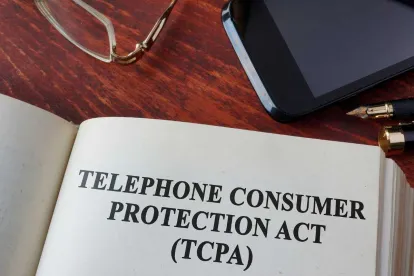SO just wrapping up my time here at LGW. Really amazing to catch up with folks for 2023–and to wish HAPPY BIRTHDAY to the DAME!–and talk about our awesome new website.
Side note–here is a love letter I received from a client at 3:18 am today:
Dude! Loved the new website. It stirred some type of deep subconscious reaction in me. Checked it out last night and woke up at 3:00 a.m. this morning from a dream that you offered me a job. Very strange as I’m 100% in love with my GC role and company. I think I’ve got some type of website envy now living in my soul.
Hahahahaha– it worked! I am hiring BTW–so any of you sleep browsing my website can feel free to apply.
Anyway, as I pack up my hotel ahead of travel wanted to provide a quick blog for you folks.
So in Jacksen v. Chapman Scottsdale Autoplex, 2023 WL 142533 (D.AZ. Jan. 10, 2023) the Defendant brought a summary judgment motion in a TCPA suit challenging marketing texts sent by a local auto dealership.
The purchase contract for the care authorized the dealership to make servicing calls related to the purchase. Ok.
The dealership argued–ever so badly–that this provision allowed it to make MARKETING calls as well.
The Court rejected this argument and in doing so BLASTED both sides for failing to do adequate legal research:
Fifteen minutes of Westlaw research by the undersigned judge found Ninth Circuit cases that seriously undercut Chapman’s argument. In Van Patten v. Vertical Fitness Grp., LLC, 847 F.3d 1037 (9th Cir. 2017), the Ninth Circuit held that “an effective consent is one that relates to the same subject matter as is covered by the challenged calls or text messages.” Id. at 1044-45 (emphasis added). “[T]he consent must be considered to relate to the type of transaction that evoked it.” Id. at 1045. The Ninth Circuit reiterated this point in Fober v. Mgmt. & Tech. Consultants, LLC, 886 F.3d 789, 792 (9th Cir. 2018): “a call must relate to the reason why the called party provided his or her phone number in the first place.” Id. at 793.
The consent provided by Plaintiff in the 2015 sales contract related to her purchase of a vehicle and authorized telephone contacts related to servicing the vehicle and collecting amounts owed. The consent does not relate to the purpose of the 2020 calls and text message – marketing entirely new vehicles.
…[T]he Court is not inclined to undertake additional detailed research and analysis on this issue when the language of the Ninth Circuit cases is clear and the parties did not bother to cite them. Chapman has not shown it is entitled to summary judgment on the basis of Plaintiff’s consent.
I mean, ouch.
It really is remarkable that folks STILL cannot find pertinent case law related to the TCPA given that TCPAWorld is totally FREE and has THOUSANDS of articles breaking down relevant cases.
In any event, the Court denies Defendant’s MSJ efforts–both those relying on the disclosure as well as an argument that the violation was the result of a “good faith” error–the court found that mistakenly thinking a consent is valid when it is not, is simply not the sort of error that allows a defense.
All of that is blasé, however.
What is interesting about the case–other than the scorn the Court showed the parties–is the Court’s NARROW read of the Plaintiff’s 30(b)(6) notice in the case.
For the non-litigators out there, a Plaintiff may depose a corporate entity by sending a list of topics the company must prepare testimony regarding. Take it from me–these things are usually pretty badly worded.
Well, in Jacksen the court refused to bind the dealership to testimony related to TRAINING on TCPA compliance where the notice asked only about POLICIES:
If a party wishes to bind a corporation to Rule 30(b)(6) testimony, it must serve a sufficiently specific notice to apprise the corporation of the topics that will be covered. The notice in this case did not apprise Chapman that these specific topics would be covered, and the Court cannot conclude that it precludes Chapman from providing evidence addressing these un-noticed subjects. As one court has correctly noted, “if the deponent does not know the answer to questions outside the scope of the matters described in the notice, then that is the examining party’s problem.” King v. Pratt & Whitney, a Div. of United Techs. Corp., 161 F.R.D. 475, 476 (S.D. Fla. 1995).
Excellent point. Really important for folks to keep in mind that a corporate defendant has not duty to prepare a witness to talk about matters outside the notice. I commonly object on the record to such questions PRECISELY because a witness need not be prepared to testify in the absence of notice.
So keep this trick in mind folks…
Back in the office tomorrow. More great content soon.




 />i
/>i

